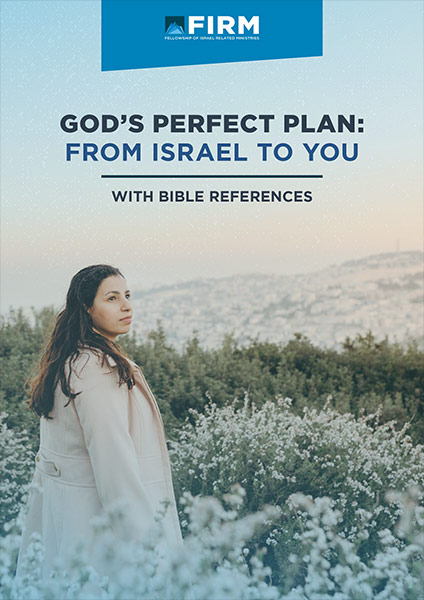What is the Torah?
Most often, we understand the Torah to be “the law”, especially as referenced in the New Testament. And most Christians tend to react to that law, or the Torah, with reservation, to say the least. So what is the Torah, and how can we understand it as believers?
We see in Psalm 119:18, David writes “Open my eyes, that I may behold wonderful things from Your law.”
For most westerners, words like “wonderful” and “law” do not go together. Yet they did for David, a man after God’s own heart.
What did David understand that we don’t? If our hearts are after God’s, we too – as Christians – will understand what wonderful things he’s seeing about God’s “law”.
What is the Torah in the Bible
Traditionally, the Torah refers to the first five books of the Bible that Moses wrote: Genesis, Exodus, Leviticus, Numbers and Deuteronomy. Within these books there are plenty of specific laws—613 of them, to be exact—which God outlines for His people, Israel, through Moses.
What religion is the Torah?
The Torah is associated with the Jewish people and the Jewish faith. It is the foundation for the laws of Judaism, as well as its practices in the Bible and through the rabbis today.
The Torah books themselves are about the beginnings of not just the Jewish people, but humanity in general. From Adam and Eve and through Noah, the books follow the narratives of Abraham’s family through Isaac and then Jacob—the Jewish patriarchs.
It is important to recognize that our Bible—the ones that Christians read—begins with this same Torah. Thus, it is the foundation for our faith too, and our understanding of God, as well.
The Torah and the Law
Our western concept of “law” is not found in the Bible. Let me give you an example. If the speed limit is 55 mph, and I just got caught driving over 70, I’m expecting a harsh fine for breaking the law.
But that’s not exactly what we find in the Scriptures.
Torah Meaning in Hebrew
“Law” is a rather misleading translation of the Hebrew word torah. For many, simply mentioning biblical law conjures up thoughts of harsh, unbendable regulations that invite swift judgment and severe punishment when broken.
And that’s not how the Bible communicates torah.
This word itself comes from the Hebrew word “yarah”. It means “to throw or shoot” and is often used to describe the shooting of arrows (as found in 1 Samuel 20:36-37). Yarah can also mean “to teach” (as found in Psalm 32:8 & Micah 4:2).
Hebrew Words and Hebrew Thought
In Hebrew thought, there is a connection between someone who teaches and someone shooting arrows. Both an archer and a teacher can send forth something with power and accuracy.
In the same way, the Torah is like an arrow. God’s words have power because of the One who sent it forth.
Ironically, one of the Hebrew words for sin in the Bible is “het” and is also an archery word. It is a term used in marksmanship. It means to miss the mark or to fall short of a target. Therefore, when we miss God’s intent in the Torah, we are literally missing the mark.
The Word Torah in the Old Testament
This is how Proverbs 1:8 and 3:1 use this word torah:
“Hear, my son, your father’s instruction and do not forsake your mother’s teaching (torah).”
“My son, do not forget my teaching (torah), But let your heart keep my commandments.”
In both verses, torah is equated to a mother’s and father’s teaching. It is given with love and guidance. Thus, the Torah is God’s loving parental instructions to His children. First to Israel, and then to all of us. It is the foundation of the Bible.
If this is not grasped at the beginning, it leads to misunderstandings and confusion about God’s heart and character throughout the Scriptures. And yes, that includes the New Testament.
When we understand this Hebrew perspective, we see less “harsh judgment” from God and more of His Fatherly discipline of Israel. And we see the same characteristics abound in the person of Jesus.
The Lord is not an angry God, ready to destroy things. God is a loving Father. He brings needed correction to keep His children on the path of His instructions.
The Heart of the Father
Proverbs 3:12 is clear that God corrects those that He loves and is like a father who disciplines his son in whom he delights.
Although we all need correction at times, the meaning of torah communicates that God does far more than discipline or judge His children. He has shown us the way to walk in.
The Jewish view is that the Torah is God’s instructions to Moses on how Israel should live, both in practical and spiritual ways. Torah is entirely designed to provide the very best quality of life possible in this dysfunctional world that we live in.
The Torah lays a foundation for God’s relationship with a people that He chose for Himself. As a loving Father, He wanted to teach Israel the very best way to live in every aspect of life on this earth.
From the Forefathers to the Disciples
The first time the Bible uses the word torah is actually to describe Abraham. This was hundreds of years before “the law of Moses.” In Genesis 26:5, God said that “Abraham obeyed Me and kept My charge, My commandments, My statutes and My laws (torah).”
God wasn’t referring to Abraham’s obedience to Moses’ writings (which didn’t exist yet). It was Abraham following God’s personal instructions on how to live and where to go. It was personal and relational.
Through the age of judges, kings, and prophets, all the way to disciples and apostles, our Creator has always shared His personal instructions with us. His torah never ceased because His love for us is eternal. And He continues to instruct us today.
The Relationship Initiated on Sinai
When the Torah was given to Moses at Sinai (Exodus 19), we often overlook this pivotal aspect of relationship and faith that was involved.
To paraphrase Exodus 19:3-6, God tells Moses to tell Israel, “You saw what I did to the Egyptians, how a bore you on eagles wings and brought you to Myself. Do you want to make a covenant with Me?”
“All the people answered together and said, “All that the LORD has spoken we will do!” Exodus 19:6
What exactly was all of Israel agreeing to?
God had not yet laid out any of the terms or instructions in the covenant, and still, the people were agreeing to it. At its core, the covenant at Sinai was covenant made in faith, without knowing any of the details!
From Exodus 19, we see that Israel’s agreement to the covenant was not based on laws or statutes. It was based on the proactive kindness and loving character of the God of Israel who came and rescued them out of Egypt.
The Heart of the Torah
Through the centuries, when the heart and compassionate intentions of God were slowly forgotten, the Torah (or its interpretation) began to become a legalistic and heavy list of outward dos and don’ts. But this was not God’s original intention.
His desire was that His people would embrace the heart and character of the One who had delivered them from slavery. He wanted to teach His children the very best way to live as a demonstration to the nations of God’s goodness. That is the heart of a good Father.
The Hebrew language within the Torah itself, amazingly suggests this concept of torah as God’s heartfelt instructions. From the very first letter of Genesis to the very last letter of Deuteronomy and everything in between – encompasses God’s heart for His people.
God in the Old Testament
When mainstream Christian theology describes God in the Old Testament as “judgmental, harsh, and angry,” this teaches a foundational distortion of His character. What is more, it disagrees with God Himself.
With such confusion, it is no wonder that no one gets excited about the five books of Moses. But look at how God describes Himself to Moses in the Torah:
“The LORD, the LORD God, compassionate and gracious, slow to anger, and abounding in lovingkindness and truth; who keeps lovingkindness for thousands, who forgives iniquity, transgression and sin; yet He will by no means leave the guilty unpunished, visiting the iniquity of fathers on the children and on the grandchildren to the third and fourth generations.” (Exodus 34:6-7)
In other words, the God of the Torah is compassionate, full of grace, slow to anger, full of love, truth and forgiveness, but does not ignore disobedience to His word.
When popular Christian theology describes God differently than He describes Himself in the Scriptures, I think that’s a major problem. Not to mention if Christians detach “the God of the OT” from “the God of the NT”, as if they were two different Gods. That is, in fact, a heresy.
Is the Torah in the New Covenant?
When we interpret God’s loving instructions as a list of rules and strict regulations, we are first and foremost fooling ourselves. We learn to go through religious motions without engaging our hearts. Or worse, we reject His instructions altogether.
Yet God knew that about humans and human nature, so He prepared a plan. Through Jeremiah, He began talking about a new covenant. Jeremiah 31 says the new covenant will not be like the one made at Sinai. The author tells us exactly what the new covenant is:
“But this is the covenant which I will make with the house of Israel after those days,” declares the LORD, “I will put My law (torah) within them and on their heart I will write it.” (Jeremiah 31:31)
According to Jeremiah, the new covenant is not throwing away the torah and starting again. It simply takes the torah (God’s loving instructions) and places it within them.
The Law Within Us
Thus, the key difference between the old and new covenant is the “location” of the law. According to the covenant at Sinai, God’s torah was outward. We needed to receive it through prophets and those whom God chose.
But under the new covenant, His torah is within, it is written on our hearts, and we have direct access to God’s guidance.
In other words, Israel had struggled to follow God’s outward instructions, hoping for an inward change. But God decided to write His inward instructions on their hearts to naturally produce an outward change.
God did not change or throw out His own instructions (torah). He is simply created a way to place it within the human heart. Ezekiel 36:27 takes it a step further and tells us that God will place His Spirit in us and cause us to walk in His teachings.
That is the essence of the new covenant. And it is very good news!

God’s Perfect Plan – From Israel to You: Free PDF Download
The Bible is full of God’s promises that can encourage our faith. Together, these promises make up one master plan of God.
You’re about to discover God’s perfect plan through the lens of 25+ references throughout Scripture.
Articles Related to What is the Torah: Is the Torah only for the Jews?
Estimated reading time: 9 minutes



